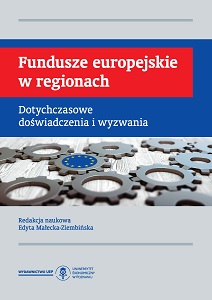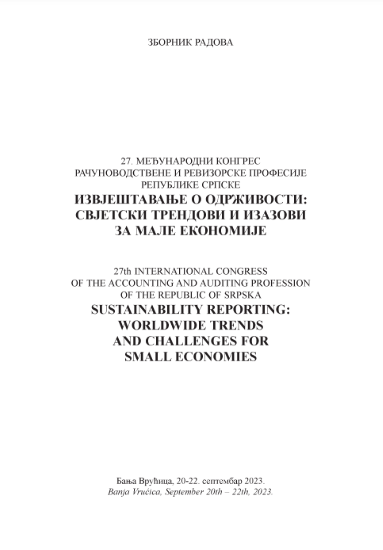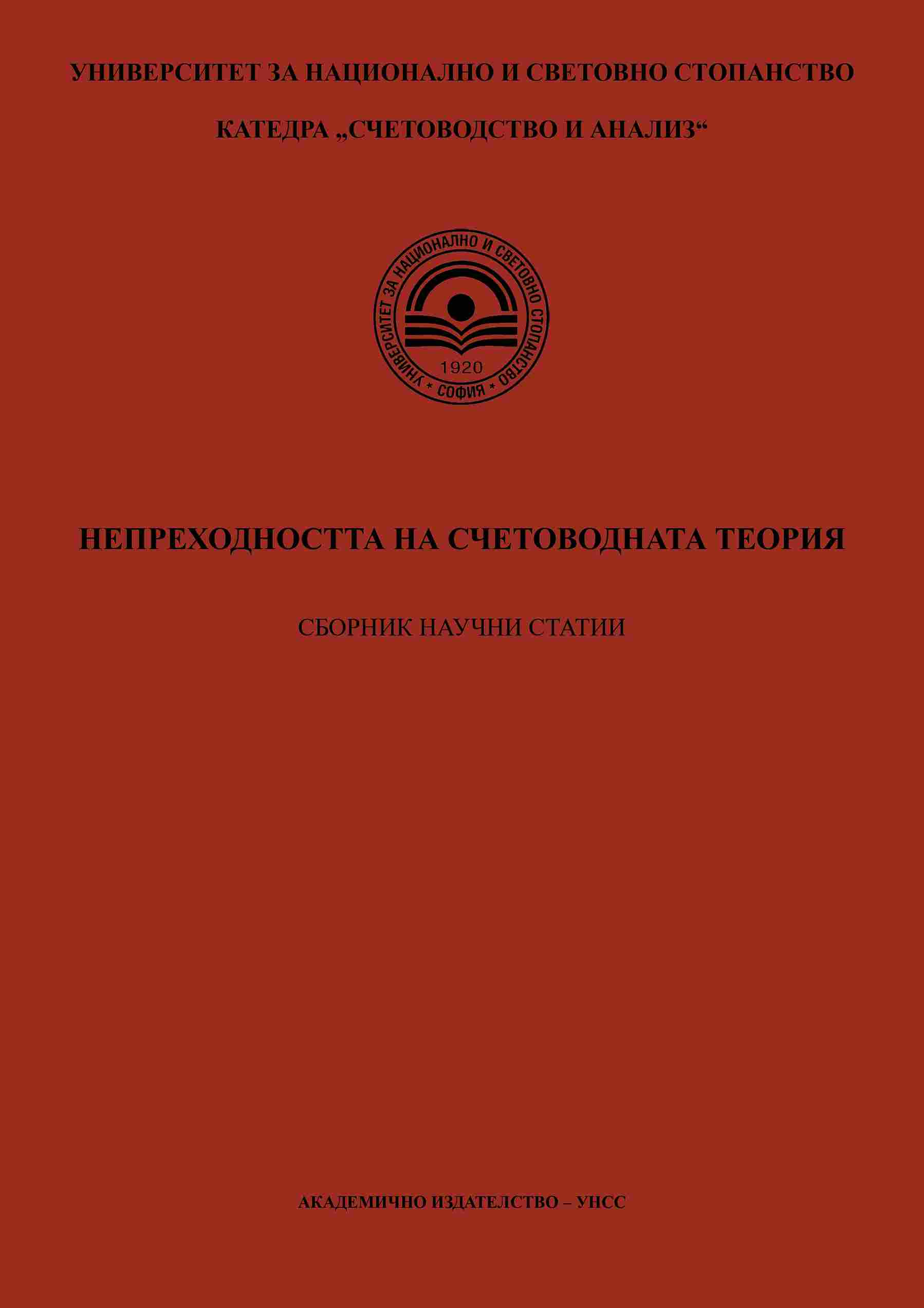
We kindly inform you that, as long as the subject affiliation of our 300.000+ articles is in progress, you might get unsufficient or no results on your third level or second level search. In this case, please broaden your search criteria.


Niniejsze opracowanie ma na celu ukazanie problemów prawno-podatkowych w sytuacji dziedziczenia spadku położonego za granicą. Kwestia transgranicznego dziedziczenia spadków staje się coraz większym problemem dla obywateli Unii Europejskiej.
More...
European Commission assess state aid measures relying on a set of predefined criteria. If an aid measure complies with these criteria, it is deemed that the positive effects of a planned aid outweigh its negative effects on competition and trade without a sufficient evaluation of its actual impact, though the latter could actually significantly contribute to the decision-making process in order to improve the design of future public interventions and rules governing state aid. This concern has been echoed in the European Court of Auditors’s 2011 Special report: ‘Do the Commission’s procedures ensure effective management of State aid controls?’, where the Tribunal finds that ‘the Commission does not assess the ex post impact of State aid in a comprehensive way’. The paper aims to investigate this problem. It is divided into three parts that correspond to the following three lines of inquiry: (1) what is the practice of granting State aid in the EU in terms of its volume and category, (the objectives for which aid is targeted), is the overall state aid volume decreasing or not, and are there shifts in state aid priorities; (2) how is the EU state aid control conducted, what are the developments in this field stemming from the postulate on the greater reliance of economic insights; and finally (3) what problems concerning the EU state aid control still need to be addressed in order to improve its effectiveness. To this end, statistical analysis is applied based on EUROSTAT data.
More...
Przedmiotem niniejszego opracowania jest wpływ Unii Europejskiej na polskie ustawodawstwo podatkowe. Autor poświęca uwagę zwłaszcza harmonizacji VAT, akcyzy i podatków dochodowych.
More...
Głównym celem artykułu jest ocena aktualnego stanu harmonizacji podatków w Unii Europejskiej z punktu widzenia kryteriów zrównoważonego rozwoju oraz wskazanie głównych kierunków zmian w tej polityce.
More...
Celem artykułu jest przeanalizowanie teoretycznych założeń integracji fiskalnej oraz propozycji rozwiązań fiskalnych dla strefy euro, jakie zostały zgłoszone przez polityków i analityków, oraz ocena szans ich wcielenia w życie. Na tle krótkiego przeglądu teorii wskazujących na rolę polityki fiskalnej dla sprawnego funkcjonowania obszaru wspólnej waluty omówiono główne problemy związane z polityką fiskalną w strefie euro. Następnie wskazano na główne elementy projektu unii fiskalnej przedstawionego w 2012 r. przez unijnych polityków. Oddzielnie przeanalizowano główne koncepcje budżetu strefy euro, jakie zgłosili ekonomiści w ostatnich latach, i dokonano ich oceny z punktu widzenia skuteczności, jak też realności wprowadzenia w życie. W ostatniej części wskazano warunki, których spełnienie zwiększyłoby efekty stabilizacyjne poszczególnych propozycji zasobów fiskalnych strefy euro. Tezą artykułu jest stwierdzenie, że najbardziej racjonalne ekonomicznie przeciwdziałanie przyszłym kryzysom strefy euro jest opcja centralnego budżetu strefy euro. Jest ona jednocześnie najtrudniejsza do wprowadzenia w życie. W tej sytuacji ogromne znaczenie dla zapewnienia stabilności unii gospodarczej i walutowej (UGW) w najbliższych latach ma konsekwentne przestrzeganie przez państwa członkowskie już istniejących zobowiązań fiskalnych (zwłaszcza Paktu na rzecz stabilności i wzrostu uzupełnionego o sześciopak, dwupak oraz pakt fiskalny).
More...
Celem opracowania jest prezentacja problemu zadłużenia w strefie euro i jego wpływu na ryzyko opuszczenia przez Grecję strefy euro. Osiągnięcie celu oparto na omówieniu następujących zagadnień: 1) sytuacja fiskalna w państwach strefy euro; 2) ryzyko grexitu.
More...
Artykuł ma charakter empiryczny. Jego celem jest identyfikacja związku między absorpcją funduszy unijnych (ogółem i per capita) przez jednostki samorządu terytorialnego a osiągniętym przez nie poziomem rozwoju społeczno-ekonomicznego oraz określenie znaczenia tego źródła finansowania dla badanych jednostek. Proces analityczny był oparty na informacjach pierwotnych (zgromadzonych za pomocą kwestionariusza ankiety od 909 przedstawicieli urzędów miast i gmin) i wtórnych (pozyskanych z Banku Danych Lokalnych). Poziom rozwoju samorządów określony został za pomocą syntetycznej miary rozwoju lokalnego (MRL), a do ustalenia zależności między jej rozkładem a wielkością środków Unii Europejskich pozyskanych przez gminy posłużyły współczynniki korelacji Pearsona i rang Spearmana. Na poziomie populacji generalnej istotny statystycznie związek korelacyjny (na poziomie 0,44) pojawił się jedynie w przypadku sum ogółem. Oznaczało to, że wzrostowi miary MRL towarzyszył umiarkowany wzrost absorpcji funduszy UE i na odwrót. Znaczenie środków unijnych oceniono na podstawie wskaźnika ich udziału w dochodach ogółem budżetów gmin oraz wyników badań ankietowych. Podejście takie wykazało, że choć środki unijne stanowiły niewielki odsetek dochodów gmin (średnio 4,79%), to zdaniem respondentów istotnie przyczyniły się do rozwoju badanych samorządów (W = 0,89). Ponadto możliwość aplikowania o fundusze miała znaczący wpływ na kształt planów inwestycyjnych jednostek uczestniczących w ankiecie (W = 0,88).
More...
W 2015 roku obchodzono 40. rocznicę zainicjowania przez Unię Europejską polityki spójności. Przez ten okres polityka ta ewoluowała wraz ze zmieniającymi się priorytetami działania Unii Europejskiej. Zasadniczy cel pozostał jednak niezmienny – zmniejszanie dysproporcji w rozwoju regionów. Zmiany w polityce spójności znalazły odbicie w badaniach prowadzonych przez różne grupy naukowców. Jednym z istotniejszych problemów podejmowanych w literaturze jest określenie wpływu funduszy na rozwój społeczno-gospodarczy. W artykule, wykorzystując teorię systemów szarych, zbadano, jaki wpływ wywierają fundusze w ramach regionalnych programów operacyjnych na wybrane zmienne charakteryzujące rozwój społeczno-gospodarczy. Badaniem objęto wszystkie województwa w Polsce. Analiza obejmowała lata 2007–2013. W tej perspektywie finansowej Polska otrzymała około 20% wszystkich środków przeznaczonych na politykę spójności (łącznie liczącej około 308 mln euro). Wyniki analiz przeprowadzonych w pracy mają charakter praktyczny i mogą być wykorzystane na potrzeby odpowiedniego kształtowania dystrybucji środków pochodzących z Unii Europejskiej.
More...
Od akcesji Polski do Unii Europejskiej dystans w poziomie rozwoju gospodarczego mierzony wskaźnikiem PKB na 1 mieszkańca ulega zmniejszeniu, jednak w regionach procesy konwergencji przebiegają wolniej. W województwie lubelskim proces „doganiania” następuje z niższego poziomu rozwoju, wynikającego m.in. z niekorzystnej struktury gospodarki, niskiej urbanizacji, słabej przedsiębiorczości i wyposażenia w infrastrukturę. Przynależność Lubelszczyzny do najsłabiej rozwiniętych regionów nie przełożyła się w latach 2004–2006 na większe fundusze pomocowe mimo stosunkowo dużej aktywności beneficjentów w programach operacyjnych. Niższy udział lubelskiego w krajowych programach ma zrekompensować program skierowany do Polski Wschodniej i wzrost wsparcia przeznaczonego na programy regionalne. Celem artykułu jest analiza kierunków alokacji funduszy polityki spójności Unii Europejskiej oraz ocena efektów w zakresie pobudzania rozwoju gospodarki Lubelszczyzny przez niwelowanie luki w infrastrukturze technicznej (transportowej, wodociągowej, kanalizacyjno-ściekowej i gazowej) oraz stymulowanie przedsiębiorczości. Fundusze UE są obecnie najważniejszym źródłem finansowania zarówno największych projektów, jak i lokalnej infrastruktury oraz mobilizacji kapitału na rozwój MŚP.
More...
Celem artykułu jest próba określenia zależności między absorpcją funduszy unijnych a zmianami poziomu rozwoju społeczno-ekonomicznego. Badania przeprowadzono w trzech etapach. W pierwszym określono poziom rozwoju powiatów województwa wielkopolskiego. W drugim etapie przedstawiono zróżnicowanie absorpcji funduszy unijnych w tych powiatach. W trzecim etapie określono zależności między wielkością absorpcji a zmianami poziomu rozwoju w układzie czynników tego rozwoju na podstawie analizy regresji.
More...
Artykuł prezentuje zestawienie wyników analiz oraz omawia rolę funduszy europejskich jako narzędzia finansowania rozwoju infrastruktury transportowej Warmii i Mazur. Na podstawie szeregu raportów wskazanych w opracowaniu można wnioskować, że region Warmia i Mazury właściwie wykorzystuje szansę związaną z członkostwem w Unii Europejskiej i dostępnością jej funduszy. Realizuje te inwestycje infrastrukturalne, które trudno byłoby urzeczywistniać na tak wielką skalę bez unijnego wsparcia. Istotnym wyzwaniem pozostaje dalsze konsekwentne wspieranie inwestycji infrastrukturalnych w regionie. Osiągnięty stan w tym sektorze nadal prezentuje się niekorzystnie. Priorytetem powinna być alokacja środków inwestycyjnych oraz zapewnienie środków na utrzymanie już powstałej infrastruktury transportowej. Wymaga to jednak dookreślenia obecnej i przyszłej roli funduszy europejskich oraz efektywnego ich wydatkowania.
More...
In the last stage of human development known as Anthropocene, global 'warming and climate change, along iwith related imbalances in physical and biological subsystems, are evident to all, as well as their negative impact on socio-economic subsystem of the planet as “system dynamics” in terms of J. Forrester. After almost two centuries of industrialization, market economy and political democracy as the main drivers of socio-economic prosperity have been transformed into frictions, bringing socio-economic system in persistent and deep regression. The impact of greenhouse gas emissions, due to uncontrolled industrialization, urbanization and massive transport, on global 'warming and climate change are scientifically verified facts. As for the socio-economic system, no doubt that the current crisis is a consequence of structural imbalances entrenched in economic neoliberalism, along with imbalances due to misconceptions in providing reactive economic policies to address inbuilt imbalances. In the meantime, new disrupters emerged as a result of the impact of external asymmetric shocks. They have even further cemented the existing deep structural imbalances and developed new ones. Major external asymmetric shocks such as the climate emergency, the biotic risk implosion, and an overwhelming impact of (geo)politics on the economy and society have been unleashed. Finding a systemic solution to rising mega disbalances in all economies, developed and developing, small and big, is an imperative of our time. Confronting reality with theoretical assumptions in ever changing environment is the first lesson calling for a radical change or a paradigm change in economics, both macro and micro. The planet, which is today at least 1.1 degrees Celsius warmer than it was in the late 1800s when the market economy had started leveraging effects of industrialization, is already facing the climate emergency. Climate scientists worry that before 2050 average temperature might surpass 1.5 degrees Celsius above pre-industrial levels. Things have gone from bad to worse with the recent intensifications of geopolitical disputes. A cumulative impact of serial wars, the world war maybe, could contribute to an increase of3 degrees Celsius even before 2050. Uncontrolled global warming is increasing the probability of the most apocalyptic consequences, including the risk of more frequent biotic feedback loops and rapid extinction of people and other living organisms. The extinction rate of living organisms in the Anthropocene age is significantly higher than in any previous period of geological history of the planet. Among scientists, including economics scholars, in discussions about crisis mitigation, the climate emergency issue dominates. There is no overnight solution to this issue, but to gradually build up a new economy. One thing is certain. Relying on neoliberal rules is not feasible. Also, building a new system is a long joumey. Even if we implement quite diverse and more complex platform, we should be aware that it is not going to be easy to turn the ongoing trends because the climate emergency is a multidimensional problem. It penetrates many other issues. Consequently, in search of solutions, we cannot work without a framework. For such mega messes in a multi-crisis (economic, financial, climate, biotic, geopolitical, etc.), non-systemic, partial, and erratic responses are not possible. First and foremost, the purpose of the economy must be changed. The impact of well-being should overcome egoism. Simultaneously, humanity 'would find a sustainable way for economic development and lifestyle in line with the limits of nature. The so-called “green transition” is a new economy (and society) gateway. 'This-is a'multi-transition (geopolitical, biotic, climate, economic and financial) from old to new system dynamics. The results of this journey toward a sustainable economy, society and the planet should also be sustainable. Following this path, before 2050 the economy could reach a climate-neutral inflection point (“net-zero ”) as a prerequisite for its long-term sustainability as well as the sustainability of society and the planet. As for economic transition, solutions would primarily require the shift from linear to circular model of growth and from the orthodox neoliberal policy platform loosed on market fundamentalism to the heterodox economic policy platform 'with a better balance between core economic policies and structural (or industrial) policies, and a greater role of macroeconomic automatic stabilizers. Last but not least, the green transition has the potential to fuel new industrialization and output gap annulment. The intention in this paper is not only to voice our concern over the ongoing multi-crisis and related mega messes, but also to raise awareness of the importance of a more adequate approach in search of solutions. Among dozens of complex and interrelated questions, in this paper we attempt to focus on those answers pertaining to the performance measurement system and disclosure contributing to sustainable development. Sustainable development is an essential element of long termism supported by the United Nations ’Sustainable Development Goals (SDGs) defined in the Paris Agreement. To deliver the sustainable development goals (SDGs), an economy has to be evolving, climate-neutral and transformative. A sustainable economy requires impact investment in infrastructure (both physical and digital), vertical industrial policies in science, education, health care and culture, and horizontal industrial policies in tradable sectors. Also, it needs a new measurement system which, besides standard financial metrics, includes metrics related to environment, society and governance (ESG). In an emerging context, the materiality concept, as a fundamental accounting concept, is changing toward “dynamic materiality”. Additionally, we see changes in all components of accounting. For instance, the introduction of IFRS sustainability standards S1/S2 directly impacts financial accounting and audit, and indirectly advisory audit and management accounting. Following the previous logic of reasoning, the material is organized in five parts, except Introduction and Conclusion. The first part is dedicated to the multi-crisis as a context requiring a radical change. The following two parts are trying to draw a distinction between a conventional way of crisis mitigation and the new one based on a multi-transition approach. The fourth part, and most important one, is focused on sustainability reporting ’based on IFRS standards S1/S2. The fifth part provides an illustrative example of big data management based on sustainability disclosure in the banking industry.
More...
Sustainable development or sustainability is based on -understanding the connection between the three basic elements that make it up: environmental protection, socially responsible behavior and conscientious corporate governance (ESG). Achieving a balance between these elements practically ensures the long-term development of human society in a preserved environment. The favoring of sustainable development is the result of the maturing awareness of the risks associated with it (ESG risks) and has influenced companies to start disclosing their position in relation to these risks. Publishing information about sustainability is the best way for companies to show and prove that they are committed to the concept of ESG and this -will only be possible if the information published through the report is accurate. Internal controls, which should ensure the accuracy of information, and internal auditing, which should provide assurance of their reliability, play a key role in this. Therefore, the aim of this study is to investigate the influence of the growing practice of sustainability reporting on the role of the internal audit function in organizations, i.e. searching for an answer to the question whether this influence only means an increase in the scope of work for internal audit, or whether it is about the transformation of its role as a generator of added value into the role of a guardian of sustainable development. For this purpose, all available, mostly secondary, sources will be used in the research, i.e. a review of the relevant literature will be carried out.
More...
To successfully stop the global increase in the temperature of the earth’s surface below 1.5oC above the level before the industrial revolution, a global transition is necessary, that is, comprehensive changes in all economic activities and entities. To finance this transition, rapid decarbonization and reallocation of capital at the global level and harmonization of the financial sector with the goals of the Paris Agreement are necessary so that every financial decision is made with respect to climate change. Serious joint efforts are being undertaken by many financial institutions, such as those involved in the Glasgow Financial Alliance for Net Zero (GFANZ) which have committed to using science-based guidelines to reach net zero by 2050. The aim of this paper is to point out the importance and challenges of the development of green finance, especially in relation to the regulatory framework and green financial instruments. As a rapidly developing field, green finance is characterized by a wide range of different regulations, principles, standards, frameworks, guidelines and other requirements that should contribute to aligning with sustainability goals, defining green finance practices and avoiding unclear or insufficiently substantiated green claims. Greenfinancial instruments should contribute to the protection of the environment, and they can appear in the form of funds from international financial institutions, multilateral development banks, commercial banks and other financial institutions, as well as funds collected through the issuance of green financial instruments.
More...
This paper presents the results of a study in the form of an interview on the applicability of the ChatGPT model on the topic of public sector accounting. The research focuses on ChatGPT because it is the most widespread artificial intelligence in a global aspect to date. In the conducted experiment were asked questions, which were accompanied by their answers and the corresponding findings. It was found that artificial intelligence presents definitions of fundamental concepts, regulators and systems in accounting incomprehensibly and factually wrong. In the author's opinion, ChatGPT is a language model for creating texts without, however, meeting any of the requirements of credibility, scientific value and scientific ethics. It was concluded that the use of the ChatGPT model in public sector accounting learning processes requires a specific training of the AI itself to convey correct answers and messages to the users of the respective learning platform.
More...
In recent years, governments' efforts have focused on creating an economy that benefits people and the environment. Businesses are exposed, directly or through third parties as suppliers and customers, to a significant risk of climate change. Users of financial statement information to assess how climate-related risks and opportunities affect the financial position of enterprises, including their future cash flows and their value, need reliable information. The latter raises the need to establish a regulatory framework that sets out the disclosure requirements for the risks and opportunities of undertakings. New challenges are open to accountants and auditors related to the appropriate disclosure of these issues. The report focuses on the main requirements of IFRS S1 General Requirements for Disclosure of Financial Information Related to Sustainability and IFRS S2 Climate-related Disclosures for disclosure of sustainability and climate risks and opportunities.
More...
The problems related to documentation and accounting reflection of international trade transactions are particularly important and topical for the enterprises that operate internationally in contemporary conditions of continuously increasing globalization. The main purpose of the paper is to explore the role, importance and specifics of documentation of international trade transactions from the perspective of accounting, arising from their economic essence, technology and characteristic features. In methodological terms, in order to achieve depth in the study of accounting issues, the paper applies an interdisciplinary approach. Through it, an integrated use of knowledge from different scientific fields is ensured and theoretical statements from the field of accounting science are considered in combination with theoretical knowledge from other scientific fields, including international economics, international economic relations, international management and marketing. The historical approach and the systematic approach, as well as the methods of observation, analysis and synthesis, induction and deduction, are also used in carrying out the research. The results from the study lead to the conclusion that standardized documents, procedures and information flows based on globally accepted rules in the field of international business contribute to the growth of global trade through the important advantages and benefits they provide.
More...
EFRAG plays a key role in sustainability reporting as it develops and submits to the European Commission draft European Sustainability Reporting Standards (ESRS). At the same time, EFRAG must enable a transparent process for the establishment, adoption and implementation of these standards, taking into account the needs of all stakeholders. In 2023, draft three guides (documents) were presented to the attention of stakeholders for discussion. The first project entitled EFRAG IG 1 Materiality Assessment contains reporting requirements on the materiality assessment and algorithm of this process. The second project entitled EFRAG IG 2 Value chain contains requirements for reporting along the value chain incl. for impacts, risks and opportunity management, as well as indicators and objectives. The third project entitled EFRAG IG 3 (DraftEFRAG IG 3 List of ESRS data points) presents the full list of detailed disclosure requirements and related application requirements in Excel format. The aim of the report is to analyze the main issues covered in the EFRAG IG 1 project: Guidelines for the implementation of materiality assessment and to try to define existing risks.
More...
The research represents the essence, role and significance of the sustainability accounting concept, as well as it explores the most discussed sustainability accounting standards, namely International Sustainability Standard Board’s Standards, Sustainability Accounting Standards Board’s Standards and European Sustainability Reporting Standards. As a result, it is proved the necessity of disclosure of sustainability information from business organizations.
More...